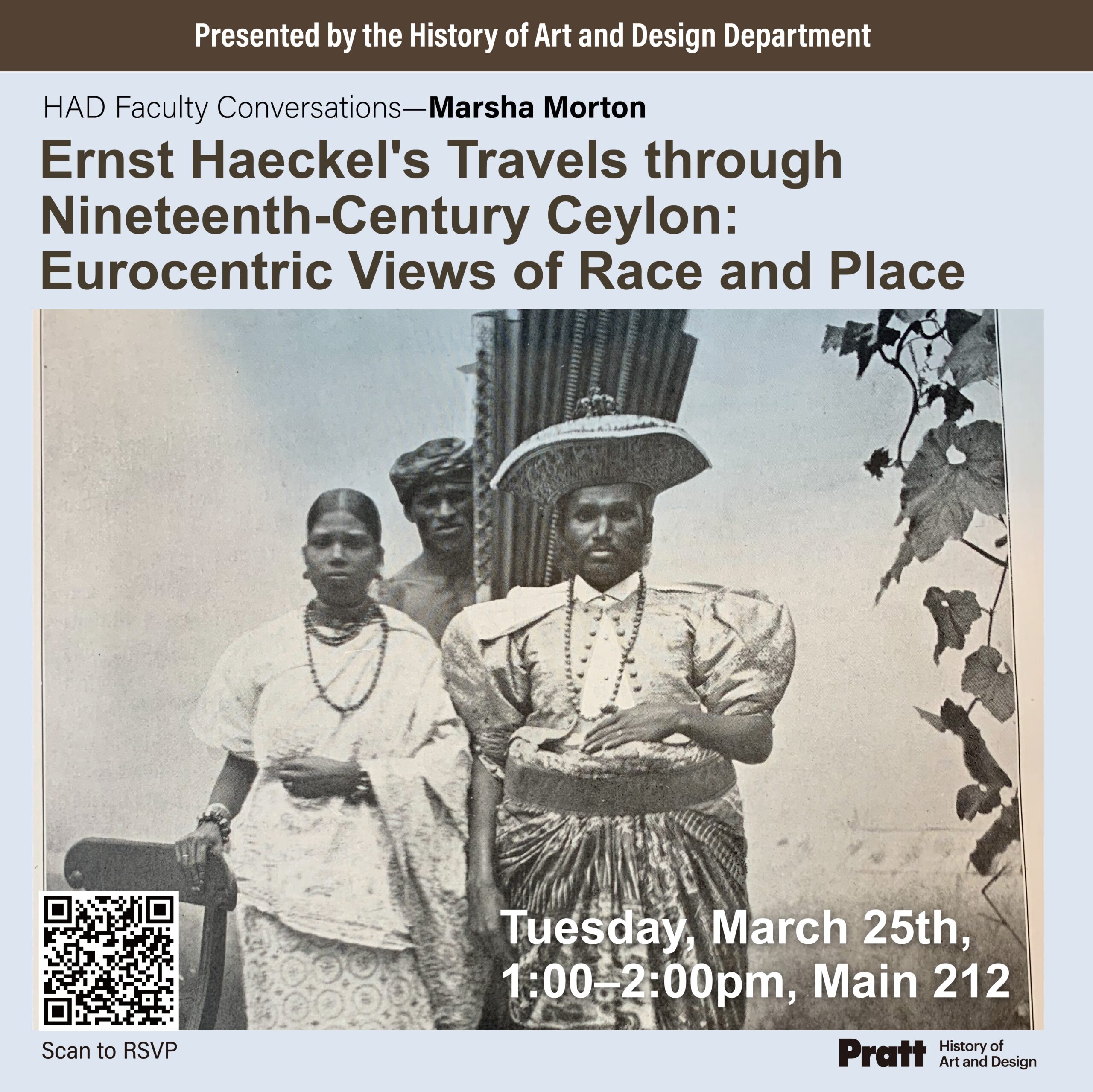Ernst Haeckel’s Travels through Nineteenth-Century Ceylon: Eurocentric Views of Race and Place
March 25, 2025 1:00 PM – 2:00 PM
Main 212

The marine zoologist Ernst Haeckel was renowned as the “German Darwin” and author-illustrator of Art Forms in Nature. Less well known is his activity as an amateur anthropologist following his trip to Ceylon and publications of the travelogue Indische Reisebriefe (1883) and picture book Wanderbilder (1905) that contains his painted tropical scenes and photographs of the native population. As I will demonstrate, these convey alterity and evolutionary hierarchy from a privileged gaze with texts characterized by essentialized descriptions and racial bias resulting from a non-diaologic “rhetoric of vision.” Wanderbilder is informed by the Eurocentric perspective of picturesque theory and the nature-culture binary of the Lebensreform movement and colonialism.
Marsha Morton’s work is centered on German and Austrian cultural history with a focus on the interdisciplinary topics of art, science (Darwin), anthropology, Orientalism, and music. In addition to numerous published essays, including three on Ernst Haeckel, her books are: Max Klinger and Wilhelmine Culture (Ashgate 2014) and the co-edited anthologies Visual Culture and Pandemic Disease since 1750 (Routledge 2023), Constructing Race on the Borders of Europe: Ethnography, Anthropology, and Visual Culture, 1850-1930 (Bloomsbury 2021), and The Arts Entwined: Music and Painting in the Nineteenth Century (Garland 2000). She is the recipient of grants from the National Endowments for the Humanities and DAAD.